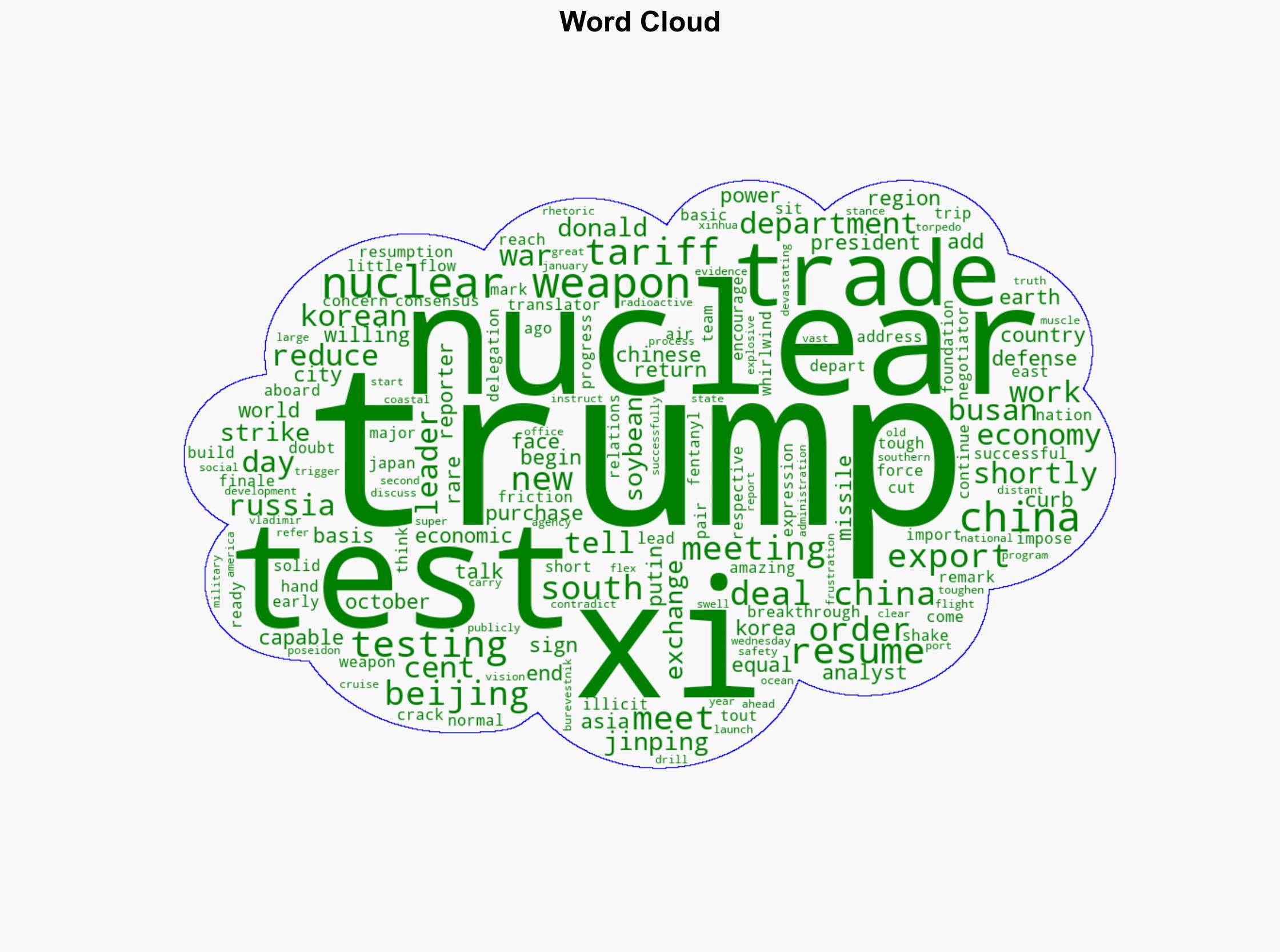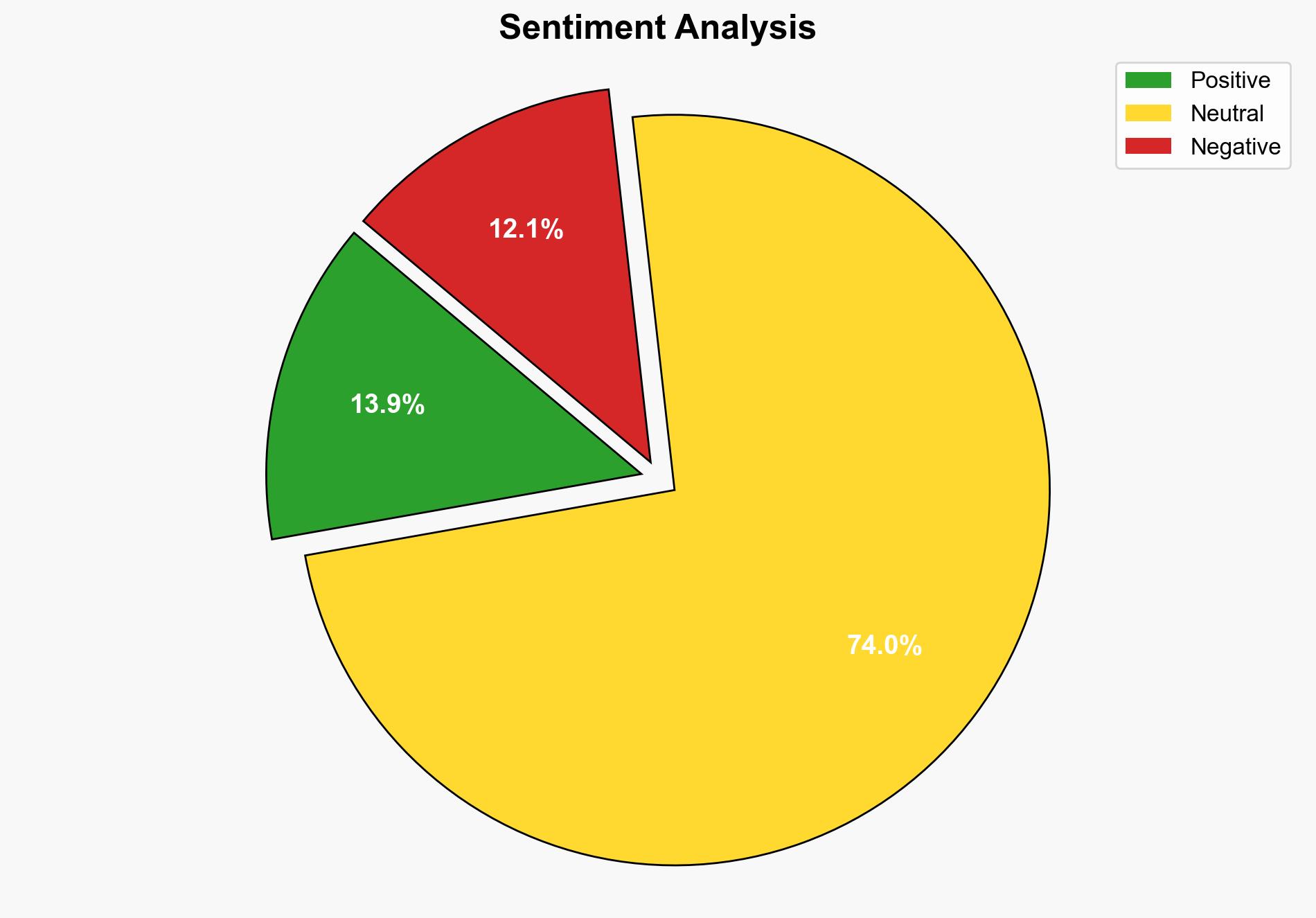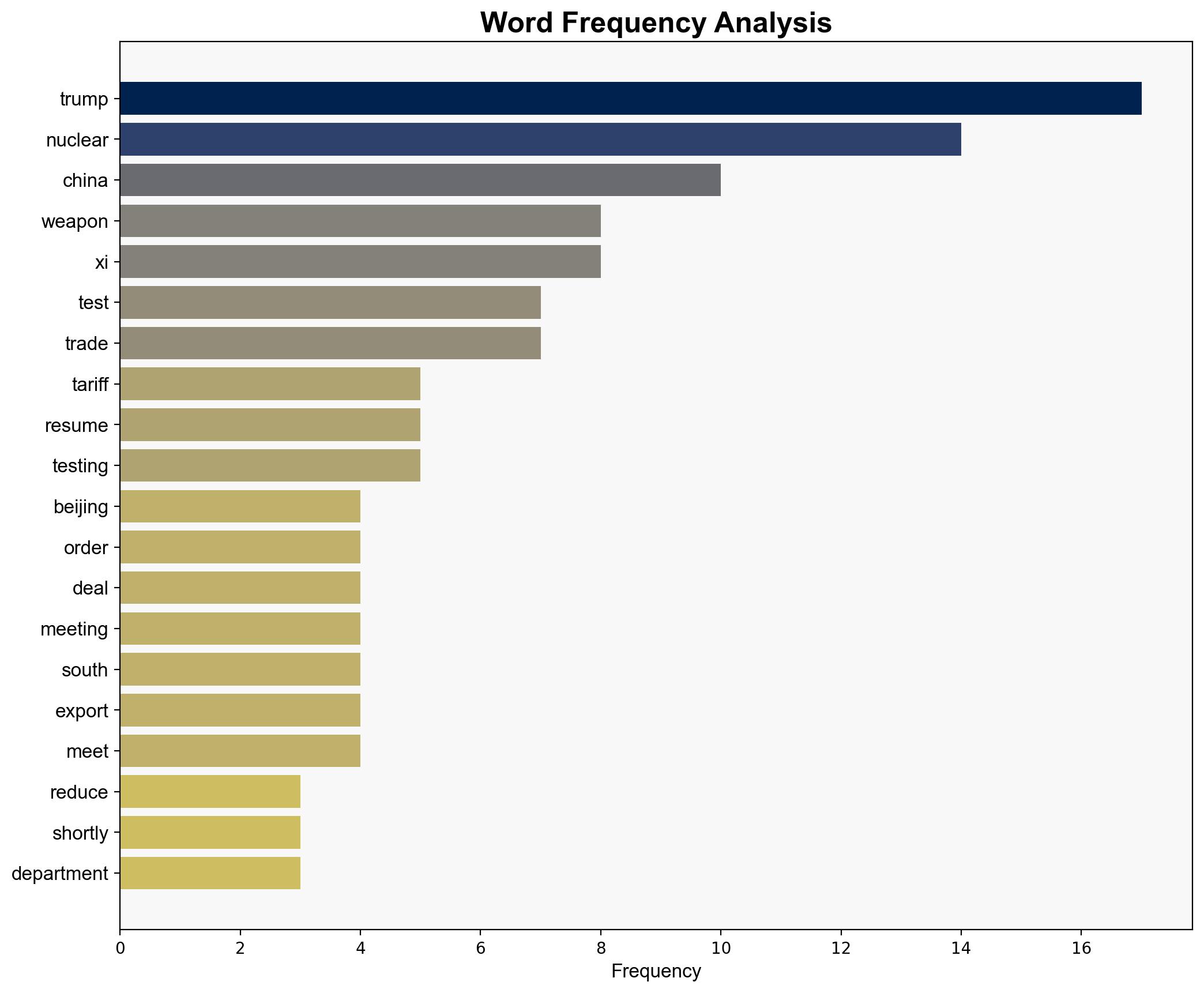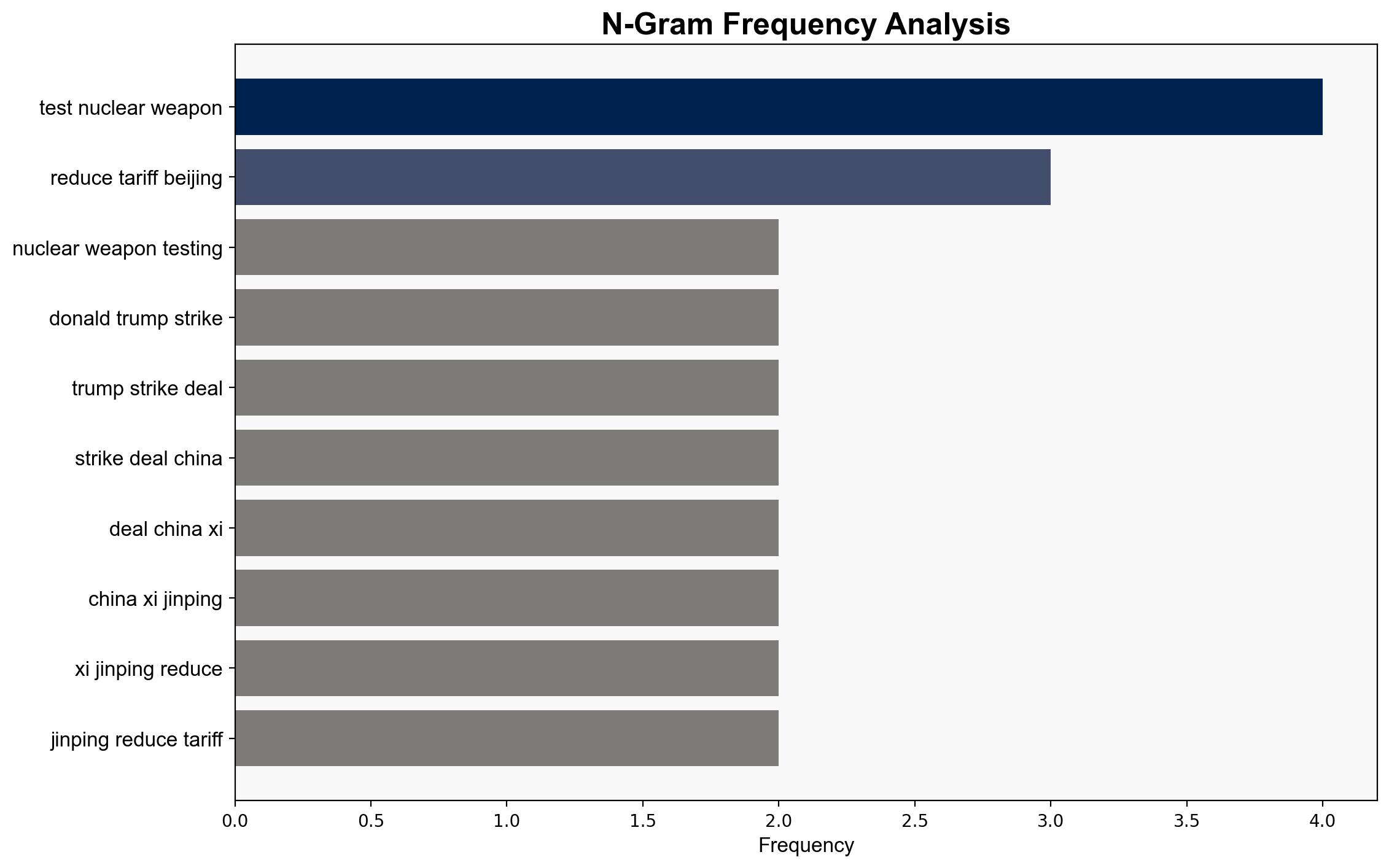Breaking Trump says he will order department to resume testing nuclear weapons – ABC News (AU)
Published on: 2025-10-30
Intelligence Report: Breaking Trump says he will order department to resume testing nuclear weapons – ABC News (AU)
1. BLUF (Bottom Line Up Front)
The most supported hypothesis is that the announcement to resume nuclear testing is a strategic maneuver to gain leverage in trade negotiations with China. Confidence level: Moderate. Recommended action: Monitor for further developments in U.S.-China trade relations and potential shifts in nuclear policy, while preparing diplomatic channels to address any escalation in nuclear rhetoric.
2. Competing Hypotheses
1. **Hypothesis A**: The announcement to resume nuclear testing is primarily a strategic move to strengthen the U.S. negotiating position in trade talks with China, leveraging military posturing to achieve economic concessions.
2. **Hypothesis B**: The announcement reflects a genuine shift in U.S. defense policy towards a more aggressive nuclear posture, possibly in response to perceived threats from Russia and China, independent of trade negotiations.
Using ACH 2.0, Hypothesis A is better supported due to the timing of the announcement coinciding with trade discussions and the emphasis on economic issues in the source text. Hypothesis B lacks direct evidence linking nuclear testing to specific defense policy changes.
3. Key Assumptions and Red Flags
– **Assumptions**: It is assumed that the announcement is linked to trade negotiations due to its timing and context. Another assumption is that nuclear testing would provide leverage in such negotiations.
– **Red Flags**: The lack of explicit statements tying nuclear testing to defense policy changes raises questions. The potential for misinterpretation by international actors could lead to unintended escalation.
– **Blind Spots**: The internal decision-making processes within the U.S. administration regarding nuclear policy are not transparent, limiting insight into true intentions.
4. Implications and Strategic Risks
– **Economic**: Potential for increased tariffs and trade tensions if negotiations falter.
– **Geopolitical**: Risk of escalating tensions with China and Russia, potentially leading to a new arms race.
– **Psychological**: Increased global anxiety regarding nuclear proliferation and security.
– **Cascading Threats**: Miscommunication or miscalculation could lead to rapid escalation, impacting global stability and security.
5. Recommendations and Outlook
- Engage in diplomatic efforts to clarify U.S. intentions and reassure allies and adversaries to prevent escalation.
- Monitor Chinese and Russian responses to gauge shifts in their strategic postures.
- Scenario Projections:
- **Best Case**: Successful trade negotiations reduce tensions, and nuclear testing is postponed.
- **Worst Case**: Breakdown in negotiations leads to increased tariffs and a renewed arms race.
- **Most Likely**: Continued posturing with intermittent progress in trade talks, maintaining a status quo of tension.
6. Key Individuals and Entities
– Donald Trump
– Xi Jinping
– Vladimir Putin
7. Thematic Tags
national security threats, economic leverage, nuclear policy, U.S.-China relations, geopolitical strategy




